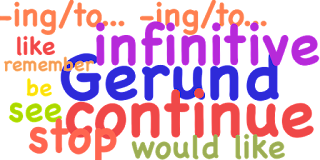Voice - Active and Passive Voice -English-see.blogspot
Voice is such a form of verb which shows whether the subject acts or is acted upon.
Pronouns changes from Active Voice to Passive Voice or vice versa:
For example,
The boy read a book.
In this sentence, "the boy" is the doer of action "read" as the boy is subject and a book is object, as the boy did something. So the verb "read" is active.
A book was read by the boy.
In this sentence "a book" is the is the receiver of the verb. Thus, the verb is passive.
Definition of Active Voice:
When the subject is the doer of the action, the verb is said to be in active voice.
Example:
He taught us English.
Subject "he" is the doer of the action "taught".
Definition of Passive Voice:
When the subject is the receiver of the action, the verb is said to be in passive voice.
Example:
We were taught English by him.
Table of Active and their passive
| Tense/Verb form | Active Voice | Passive Voice |
| Simple Present | v¹/v5 | is/am/are+v³ |
| Present Continuous | is/are + v⁴ | is/are + being+v³ |
| Present Perfect | has/have + v³ | has/have + been + v³ |
| Present Perfect Continuous | has/have been + v⁴ | has/have been being + v³ |
| Simple Past | v²/did(not) + v¹ | was/ were (not) + v³ |
| Past Continuous | was/were + v⁴ | was/were + being + v³ |
| Past Perfect | had + v³ | had been + v³ |
| Past Perfect Continuous | had been + v⁴ | had been + being + v³ |
| Simple Future | will/shall + v¹ | will/shall + be + v³ |
| Future Continuous | will/shall be + v⁴ | will/shall be + being + v³ |
| Future Perfect | will/shall have + v³ | will/shall have been + v³ |
| Future Perfect Continuous | will/shall have been + v⁴ | will/shall have been being + v³ |
| Active Voice | Passive Voice |
| I | me |
| You | you |
| He | him |
| She | her |
| We | us |
| They | them |
Examples:
Active: A monkey eats banana.
Passive: Bananas are eaten by a monkey.
Active: Columbus discovered America.
Passive: America was discovered by Columbus.
Active: I have written this book for juniors.
Passive: This book has been written by me for juniors.
Passive construction for demonstrative verbs:
Demonstrative verbs have two objects. They are known as direct object and indirect object.
Generally, persons are indirect object where as things are direct object. So, demonstrative verbs can have two passives.
Let's see some passive of demonstrative verbs.
Active: I gave you the science book.
Passive 1: The science book was given to you by me.
Passive 2: You were given the science book by me.
Passive of Phrasal Verbs:
Only the verbal element is changed and the preposition remains unchanged.
Example:
Active: A man brought him up after his mother's death.
Passive: He was brought up by a man after his mother's death.
Active: Mother looks after her children.
Passive: Children are looked after by mother.
Passive with modals: Use modals+be+v³
Example:
Active: We should help him.
Passive: He should be helped by us.
Active: You ought to obey your parents.
Passive: Your parents ought to be obeyed.
Passive of Commands and Orders:
Use the format:
Let+obj+be+v³ Or,
Obj+should be+v³
Example:
Active: Write this letter.
Passive: Let this letter be written. Or, This letter should be written.




Comments